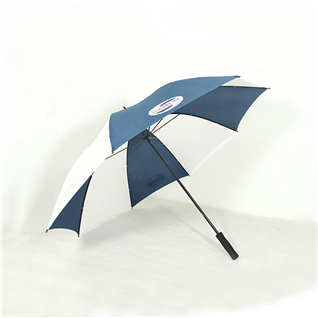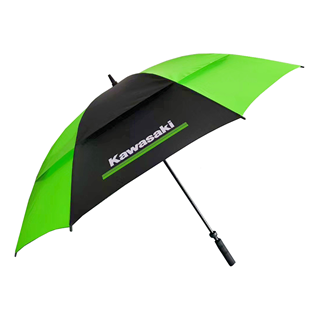+86-0755-27720464
+86-0755-27720464
Talk About Sustainability in Golf Umbrella Manufacturing
Date:2024-12-11Browse times:1845
As the world increasingly focuses on sustainability, the golf umbrella manufacturing industry is taking note. More manufacturers, including prominent companies like Full, are integrating eco-friendly practices into their production processes to reduce their environmental impact. The combination of growing consumer demand for sustainable products and environmental responsibility has spurred change in how golf umbrellas are designed, produced, and disposed of. This article takes a deep dive into sustainability in golf umbrella manufacturing and highlights the steps being taken to make the industry greener.
Golf umbrellas, like many other products, have historically posed environmental challenges. They are often made with synthetic materials such as nylon or polyester for the canopy, along with metal components for the frame. While these materials offer durability and weather resistance, they can take hundreds of years to decompose in landfills. Additionally, many traditional golf umbrella manufacturing processes involve high energy consumption and the use of harmful chemicals.
The challenge for manufacturers is to balance the demands of creating a durable, functional product with the need to reduce environmental impact. Companies like Full are tackling these challenges head-on, introducing innovative strategies that promote both quality and sustainability in golf umbrella production.
One of the most significant shifts in the industry has been the move toward more sustainable materials. Traditionally, golf umbrellas have been made from petroleum-based fabrics like polyester, which are not biodegradable. However, Full and other forward-thinking manufacturers are experimenting with eco-friendly alternatives, such as recycled polyester, organic cotton, and even plant-based plastics.
Recycled polyester, for example, reduces the need for virgin materials, significantly cutting down on the energy and resources required to produce the fabric. This also helps divert plastic waste from landfills, contributing to a circular economy. In some cases, even the frames of golf umbrellas are being made from recycled aluminum or other sustainable metals, reducing the need for new raw materials.
Another promising material being explored is biodegradable fabrics that are made from renewable resources. These materials break down naturally in the environment, minimizing the ecological footprint when the umbrella eventually reaches the end of its lifecycle. Full has started incorporating these materials in their latest umbrella designs, ensuring that sustainability is considered at every stage of production.

Sustainability doesn't only refer to the materials used; it also encompasses the manufacturing process itself. Ethical manufacturing practices, such as reducing carbon emissions, conserving water, and minimizing waste, are crucial to making golf umbrella production more sustainable.
Full is committed to adopting more energy-efficient production methods, which help lower the overall environmental impact of their manufacturing processes. In addition to using renewable energy sources like solar and wind power, they also prioritize minimizing waste through recycling and upcycling leftover materials from the production process.
Furthermore, Full focuses on ensuring fair labor practices within their supply chain. Sustainability in manufacturing is not just about the environment; it's also about the people involved in the process. By ensuring that workers are paid fairly, work in safe conditions, and have opportunities for career development, manufacturers can create a positive impact on both the environment and society.
The design of a golf umbrella plays a key role in its environmental sustainability. By rethinking design elements like the frame, canopy, and handle, manufacturers can improve both the durability and recyclability of the product. Full has been exploring lightweight materials and modular designs that can be easily repaired or replaced, reducing the need for entire umbrella replacements. For instance, a modular design allows users to replace only damaged parts, such as the frame or canopy, rather than discarding the entire product.
Furthermore, innovations in umbrella frame construction can reduce the use of metals and plastics. Full has been experimenting with stronger, more flexible materials that require fewer resources to produce while maintaining the same level of performance.
Consumers are playing a pivotal role in driving the shift toward sustainable products. With an increasing focus on sustainability in fashion, home goods, and outdoor gear, many consumers are now seeking eco-friendly alternatives when it comes to their golf accessories. Full has responded to this demand by offering a line of golf umbrellas that combine sustainability with high performance. These umbrellas are not only durable and functional but are also designed to have a minimal impact on the environment.
The eco-conscious consumer is becoming more aware of the entire lifecycle of a product, from production to disposal. Full has embraced this mindset by creating umbrellas that are both long-lasting and recyclable, encouraging consumers to make environmentally responsible purchasing decisions.

At the end of a golf umbrella's life, proper disposal or recycling becomes crucial. Full is working on systems that encourage consumers to return their old umbrellas so that they can be refurbished or broken down for recycling. In addition to this, the company provides clear instructions on how to recycle components like the frame and fabric, helping to close the loop in the product's lifecycle.
Incorporating a take-back program for old umbrellas and ensuring that components can be recycled or repurposed is an important step in addressing the growing issue of waste in the umbrella industry. Full’s commitment to reducing the amount of plastic and non-biodegradable materials in their umbrellas is a testament to their dedication to sustainability from start to finish.
As the global conversation about sustainability continues to evolve, the golf umbrella manufacturing industry will likely see even more changes in the years ahead. With increasing pressure from both consumers and regulators, manufacturers like Full will continue to innovate, adopting new technologies and practices that promote a more sustainable future.
From the use of recycled materials and ethical labor practices to modular designs and end-of-life recycling programs, the industry is moving toward a more environmentally responsible approach. By embracing sustainability, companies like Full are not only meeting the demands of eco-conscious consumers but also leading the way toward a greener, more sustainable future for the golf umbrella industry.
In conclusion, sustainability in golf umbrella manufacturing is not just a trend but a necessary shift that benefits the environment, society, and the industry as a whole. Full’s commitment to eco-friendly practices exemplifies the change that is possible when businesses take the initiative to reduce their environmental impact. As the industry continues to evolve, we can expect even more innovations that will help preserve our planet while delivering high-quality products to consumers.